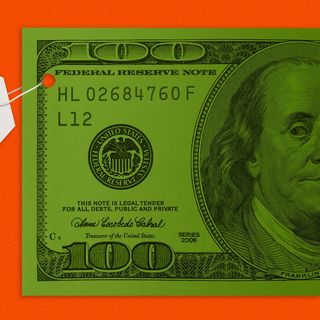Ray Dalio says the Moody's rating downgrade understates the risks of US debt
Andrew Kelly/REUTERS
- Ray Dalio said on X that Moody's credit downgrade doesn't cover the risks of government money printing.
- Moody's downgraded US credit to Aa1, citing growing deficits and ballooning interest payments.
- A GOP tax bill could worsen US debts, with proposed tax breaks and increased defense spending.
Billionaire investor Ray Dalio thinks Moody's recent downgrade of the US sovereign credit rating doesn't capture the danger of the federal government simply printing cash to cover its bills.
"You should know that credit ratings understate credit risks because they only rate the risk of the government not paying its debt," Dalio, the founder of Bridgewater Associates, warned said on X. "They don't include the greater risk that the countries in debt will print money to pay their debts thus causing holders of the bonds to suffer losses from the decreased value of the money they're getting."
"For those who care about the value of their money, the risks for US government debt are greater than the rating agencies are conveying," Dalio added.
Dalio's comments came after Moody's, the international financial services company, downgraded the US credit from Aaa to Aa1 on Friday, citing growing deficits and surging interest payments. That makes Moody's the last of the three major credit agencies to bump America's credit off the highest rating. S&P Global Ratings downgraded the US back in 2011, and Fitch Ratings followed suit in 2023.
In response to the downgrade, stocks slipped on Monday while Treasury yields spiked. The 30-year bond yield jumped 4.995%, and the 10-year bond yield rose to 4.521%.
Adding to investor concerns, economists are sounding the alarm on a tax cut bill proposed by Republicans that could come to pass given the slim GOP majorities in both the House and the Senate.
The bill proposes tax breaks for the wealthiest Americans through a higher estate tax exemption, interest tax breaks for private equity, and a $150 billion boost in defense spending. It also plans to increase the child tax credit by $500 and eliminate taxes on tips and overtime pay.
Despite the bill also proposing spending cuts to Medicaid and SNAP and to hike taxes for immigrants, the Budget Lab at Yale, a nonpartisan policy research center, says that the GOP bill would worsen America's debt.
"The bill as currently proposed would substantially add to the deficit, even if accounting for possible tariff revenue," authors of the report wrote, "If we account for the likelihood that these provisions would become permanent, at the end of 30 years the debt-to-GDP ratio would be over 180%, even assuming substantial revenue from tariffs."
According to the report, Sudan and Japan are the only two countries with a debt-to-GDP ratio over 180%.
"Assuming temporary provisions expire, the bill's baseline cost of $3.4 trillion would make it the largest spending package in US history," the report added.
In a rare Sunday night vote on May 18, the GOP tax cut bill narrowly passed the House Budget Committee, which days before rejected the bill. The bill now heads to the House for a vote this week.
A spokesperson for Dalio did not immediately respond to a request for comment.

